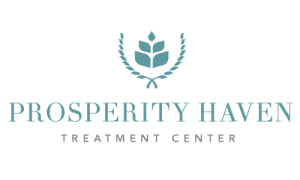Intensive Outpatient
Program in Cleveland, OH
Making Recovery Work with IOP
Intensive Outpatient Program for Addiction Treatment
Prosperity Haven’s Intensive Outpatient Program (IOP) allows you to continue receiving consistent, high-quality treatment as you transition away from residential rehab. At the same time, we understand that not everyone will be able to continue to engage in the same level of treatment once jobs, school, family, and home responsibilities re-enter the equation — that’s why we work hard to offer outpatient treatment that allows you to access our continuum of care in a way that works with your schedule.
A step down from our Partial Hospitalization Program, this IOP treatment is a vital transitional period in your journey to recovery. Although we won’t see you as often, you’re still connected closely with your peers in group sessions, and your counselor and case manager are still with you every step of the way as you begin this new phase of recovery.

WHAT IS IOP TREATMENT?
At this point in your addiction recovery journey, we believe you have developed the tools and skills you need to feel more confident with sobriety and avoid relapse as you progress towards a more independent lifestyle. Compared to Partial Hospitalization, our IOP is a less intensive outpatient treatment program that provides 10 hours of individual and group therapy per week, broken up into several meetings during the daytime. This gives you more freedom to pursue work, school, family activities, and other parts of your life that contribute to a healthy recovery and a sense of a “normal” routine, alongside the continued outpatient drug treatment you need.
We know that recovery takes patience, commitment, and a lot of support from friends and loved ones. At this stage in your recovery, we empower you to establish and strengthen in-person relationships and build a support system — including accessing local recovery and 12-step support groups — that you can lean on after you complete rehab.
The Difference Between Intensive Outpatient Programs and Regular Outpatient Programs

Intensive outpatient drug rehab is, as the name suggests, a more intensive outpatient treatment program. IOP shares some key features of regular outpatient programs (OP), including:
- The client lives at home and not in a treatment center
- The program is structured to accommodate the clients’ regular schedule
- The need for drug testing (because the facility cannot monitor the client’s behavior outside of it).
However, an IOP program has a somewhat different objective than regular OP. Outpatient services treat mild cases with minimal interference to the client’s lifestyle, while IOP attempts to provide inpatient care to a client in their home environment, rather than a treatment center.
Typically, this means that IOP requires the client to participate for many more hours over the duration of their treatment. How clients participate may not be so different, and it may just include more hours of skilled and intensive outpatient therapies and treatment sessions, but the greater intensity of care can produce more substantial results.
Outpatient Rehab Treatment Overview
Just like our residential care, our Cleveland, Ohio outpatient rehab provides:
- Individual therapy to continue strengthening your recovery
- Dual diagnosis therapy focused on addressing both your mental health condition and substance use disorder
- Group therapy sessions with peers for ongoing fellowship & support
- Life skill workshops to further develop & refine your recovery tool-kit


THE VALUE OF ENTERING IOP NEAR CLEVELAND
Intensive outpatient programs are particularly effective in helping clients maintain their sobriety in the months after treatment at a Partial Hospitalization Program (PHP) and Residential Inpatient program. During intensive outpatient treatment, clients can continue to work on the core fundamentals of recovery from substance use disorders, expanding their toolkit to include methods of stress management, trigger avoidance, and coping techniques. Through continued therapy and workshops, clients will also be introduced to further lifestyle changes that will strengthen their sobriety and overall wellness, including changes in diet, regular exercise, and sleeping aids.
Our outpatient care builds on the work done during residential rehab while focusing on challenges that usually arise within your first year, after the initial early recovery stage. Through a comprehensive all-male outpatient program at Prosperity Haven, we provide our clients with the tools, structure, and continued support needed to reach treatment goals and aid relapse prevention in the long term.
Is IOP Right for You?
Intensive outpatient treatment programs are uniquely powerful. This is largely attributed to the blend of significant benefits and skills training that they can provide. Day treatment programs combine excellent and complete care, the security and stability of remaining within your own home environment, and integrated progress within your regular lifestyle.
However, IOP doesn’t work for everyone. If you are concerned that your addiction is too severe, or your home environment will encourage you to relapse, you may be recommended to try an inpatient treatment setting and benefit from a higher level of care instead.

Treatment Application
Complete the Form Below to Apply for Treatment Today
"*" indicates required fields
OUR POST-REHAB CONTINUUM OF CARE
Any form of outpatient support is vital to successful rehab, as it allows you to begin living independently while you continue receiving the guidance you need with lower levels of care. IOP is essential to our step-down approach because it will give you the first opportunity to truly live on your own and participate in activities that you were unable to during the early stages of rehab.
Spending your days immersed in your routine allows you to practice the skills you learned in recovery in a real setting while having the ability to break down potential problems and roadblocks that arise in the process with a licensed substance abuse counselor with intimate knowledge of your case.

How Our Intensive Outpatient Program Helps
Prosperity Haven’s IOP aims to help you deal with the various struggles that you may encounter in the first year of recovery, including:
- Post-acute withdrawal syndrome
- Slips and relapses
- Cravings
- Mood swings
- Anxiety issues
Alcohol and drug abuse can affect an individual long after the first day of sobriety. It takes a lot of patience on the client’s side and a lot of care and compassion from family members and loved ones to overcome an addiction and reach a point of serenity. This stage of care also allows you to discover what activities, therapies, and treatment options are most practical in your day-to-day routine and develop coping skills while continuing to have the professional support needed to manage your addiction and mental healthcare.
It’s important to remember that while intensive outpatient programs and other forms of post-residential care are meant to build on your repertoire, outpatient alcohol treatment and substance abuse treatment are not by any means a cure for addiction. Addiction cannot be cured in the short term through outpatient rehabs alone — it can only be overcome through a long-term commitment in the correct treatment setting.
Premier Drug and Alcohol Addiction
Treatment Center in Ohio
At our intensive outpatient program, we have gone to great lengths to give men of all ages, from young adults to seniors, access to a non-judgmental, all-male rehab. Here, they can take back control of their lives from addiction. We understand that there are many options and treatment services for addiction treatment in the greater Cleveland, OH area, which is why we encourage you to reach out to us directly to find out why our outpatient rehab is a cut above the rest. Contact Prosperity Haven today to learn more about treatment planning and we’ll help you determine whether IOP or a more intensive level of care is the best choice for your recovery.






